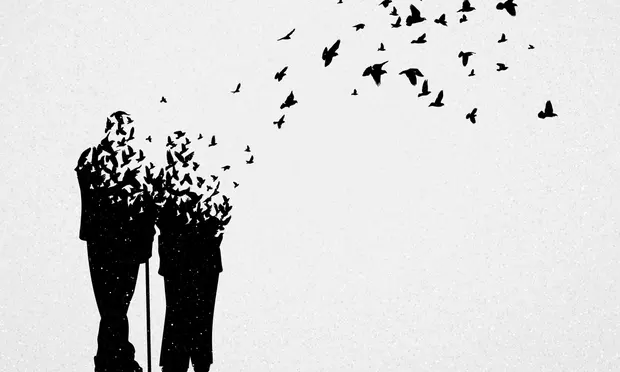— In the hospital room I lost it. I stood there awkwardly with wet eyes. And then something incredible happened

By Paul Daley
The word that our old friend was about to die travelled as quickly as a Mallee scrub fire. He’d been medically evacuated home from overseas a week or so earlier. He was now in hospital with his family about him, not very responsive and unable to talk.
“You should get there quickly. He might only have a day or two.”
There was disbelief and shock. I’d last seen him across a cafe table in Glebe three months earlier where he was characteristically ebullient. He enthused about his plans overseas for the years ahead, and spoke of his love for his children and grandchildren.
He gave me four boxes of antique books.
“I don’t need stuff where I’m going,’’ he said. He meant overseas. His words now seem unintentionally prescient.
The sadness I felt when I heard of his terminal decline was largely about his now unrealised – and cruelly thwarted – plans. Also, I just couldn’t – still can’t – foresee a world without this man, one of the bravest, most forthright, irreverent, passionate and generous people I’ve known.
Last year in this space I wrote about the importance – and occasional fickleness – of “mateship’’ and male friendship. I wrote how “two of my most important friendships have been with men who are both 20 years older than me’’.
“Both are intensely creative and passionate, have done amazing things while continuing, as their 80s approach, to live compelling lives that have been marked by courage and iconoclasm, sensitivity, tragedy, devastating loss, success, disappointment and, not least, a desire to do good. They’ve gently guided me and been there (each with a sixth sense, almost, that told them I was troubled) when life has cut up rough.’’
This was one of the men I had referred to. He’d long been around for me as a mentor – on how to be genuine, how to be true to your beliefs and art, and especially on how to learn to not give a damn about the critics and the knockers. He’d been there to counsel me through the grief associated with my parents’ deaths. He’s the type of bloke who texts when your team wins – or loses – big. Who always asks after – even offers to mind – your dogs.
When serious illness struck my family a few years ago, never a week passed without him checking in. Urging me to hope. For hope and optimism were always his propellants. Publicly at least.
And so I drove out of Sydney on one of those glorious, crisp autumn mornings under a crystalline sky of the gentle blue you might find on a bolt of shirt cotton in the tailor’s window. It was an air-punch morning. One on which to celebrate life. And I was driving to a regional hospital to say goodbye to a dear friend who, although 77, was Peter Pan incarnate to me and so many others. I was counselling myself as I drove to keep it together. For him. For how much do the dying fear what’s next and become even more afraid when their anguish is reflected in our eyes and responses? We are raised to be stoic in their presence, when our instinct is the opposite.
It was on a day like this, 25 years earlier, we’d first met over a long lunch in Sydney where I’d come, as a newspaper reporter, to write a profile about him. We’d been true mates ever since. Although I do wonder at the equality of our friendship; he always seemed more there for me than I for him. Yes, we talked often about the tragic death of his adult son. But I could offer him nothing, then, because I had never experienced any such loss. I could not reciprocate the hope he’d always urged in me. For it was already hopeless. I could only lend a caring, passive ear to his pain. I don’t know how he survived that. Testimony to an old soldier’s resilience, perhaps.
And in the hospital, now, there he was in bed, diminutive now for such a robust man and wearing the pallor of imminent death. His beautiful children were about him, the room brimming with love. His eyes and his smile sparkled as they always had. He grinned as we held hands. There was time alone. I thanked him for it all. And yes, I lost it. I could do nothing but stand there awkwardly, with wet eyes, when his kids re-entered the room. I felt like an intruder.
And then something extraordinary happened.
Helped by his son, he stood on unsteady legs upon a mobility device to visit the bathroom. I gave him a stoic two-handed thumbs-up. He smiled and gestured for me to come forward. As we hugged in silence he patted me on the back as if to sooth my earlier evident distress.
It was an extraordinary act of selfless compassion, a perpetual gift if you like, from a mate who had already imparted so much to me about life and humanity. He was making sure I was OK.
He died a week later.
Complete Article ↪HERE↩!
